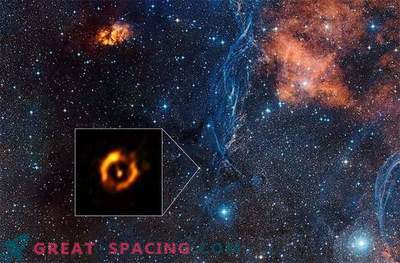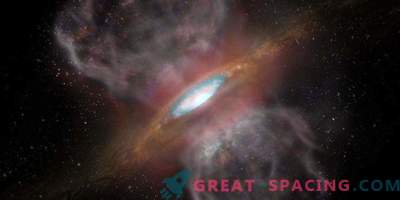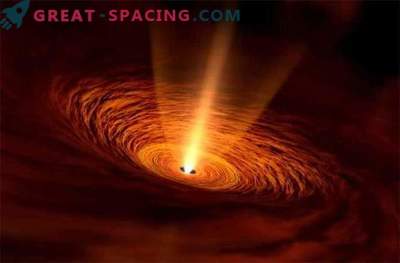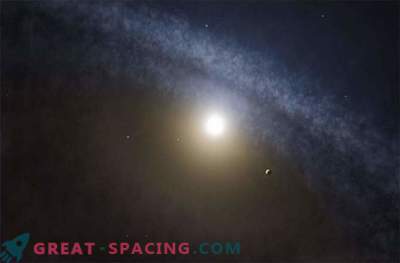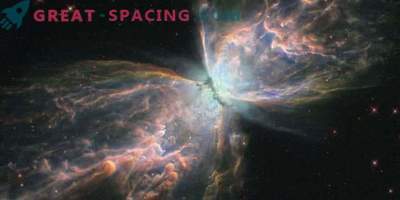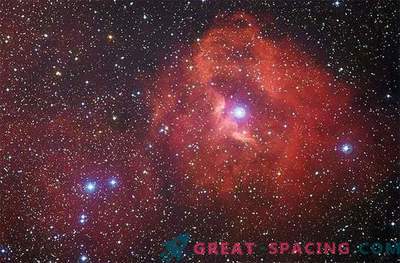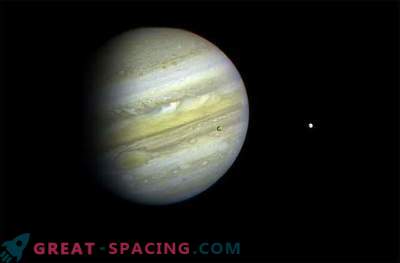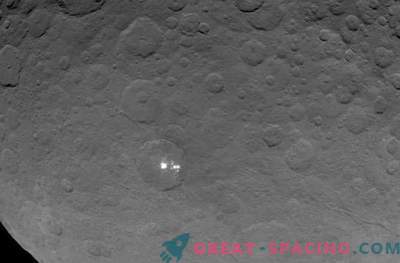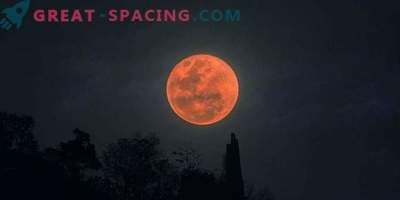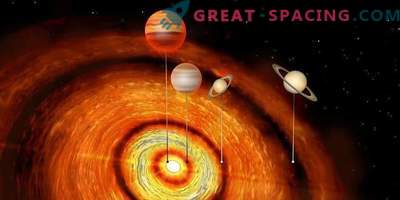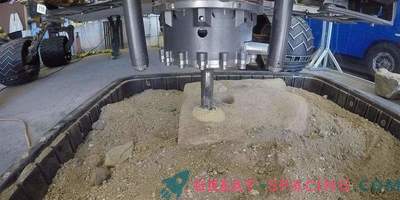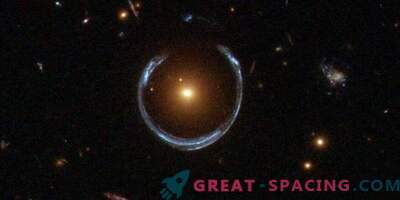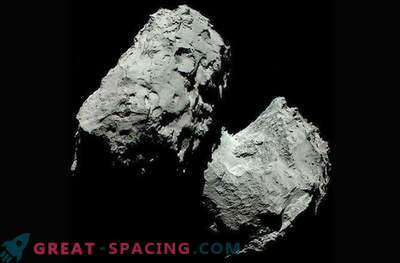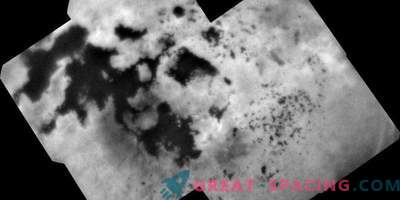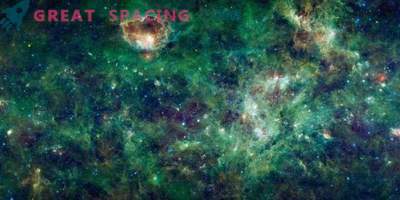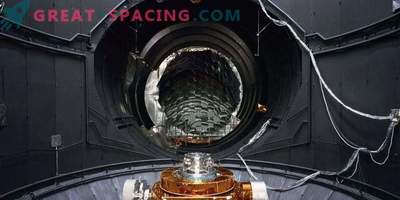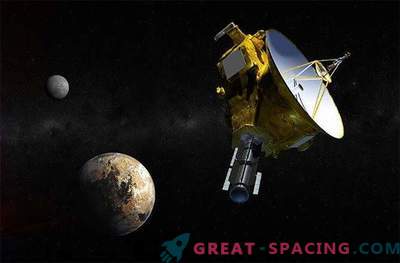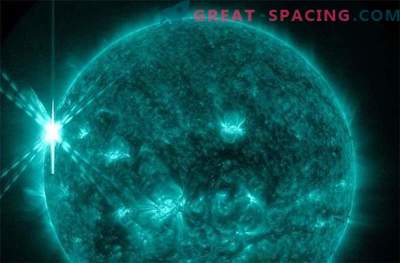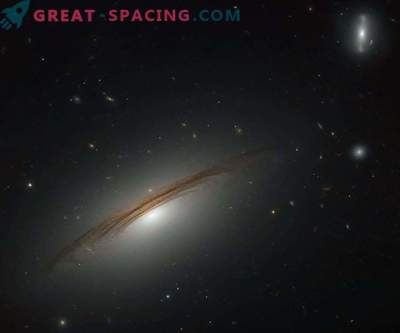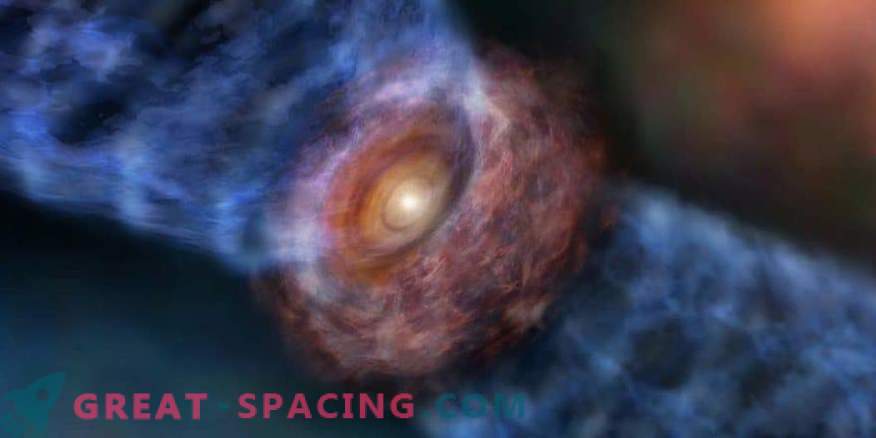
Artistic vision of a disk of dust and gas around a massive protostar MM 1a with a satellite MM 1b forming in external areas
In a recent careful study of the star birth process, scientists were in for a surprise: not just one new celestial body, but two at once! In 2017, researchers with the help of a new set of radio telescopes in the desert of Chile followed a massive young star MM 1a, located at a distance of 10,000 light years in the active birth of stars. Analysis has shown that a newer star is accompanied by a weaker object - MM 1b.
It turns out that MM 1b is the youngest sister of the first star, which emerged from the splashes of gas and dust, and held by the gravitational pull. Usually such a disk is able to create planets. But in a particular case, the star and the disk are so massive that a second star is born nearby.
Not a couple at all
For further observations, we used an array of 66 telescopes in the high-altitude Chilean desert - ALMA. Scientists were able to detect remote objects with high resolution. MM 1a is huge, 40 times more massive than the Sun, but the youngest star reaches only half of the solar mass. Such a difference in double stars is a non-standard phenomenon. Usually double stars are similar in parameters, but here the mass ratio is 80: 1. Stars make stars
Stars are condensed from massive disks of dust and gases, which gradually merge due to gravity. When combined, the elements begin to rotate, and the remnants of dust and gas circling around them. In small stars, like the Sun, the disk is capable of creating planets. But because of the enormous size of MM 1a, we see next to it not the planet, but the second star.
Researchers believe that MM 1b may have its own space debris disk, which theoretically would create planets. But here it is worth hurrying. Massive stars, like MM 1a, live for millions of years, and then explode in the form of supernovae. When this happens, the entire area is sterilized and the planets will not have a chance.
